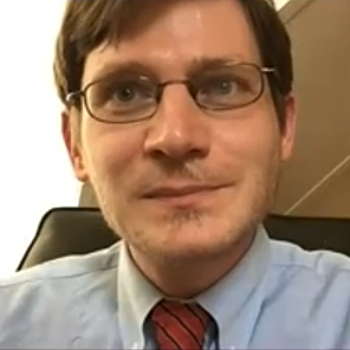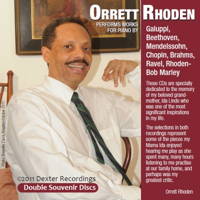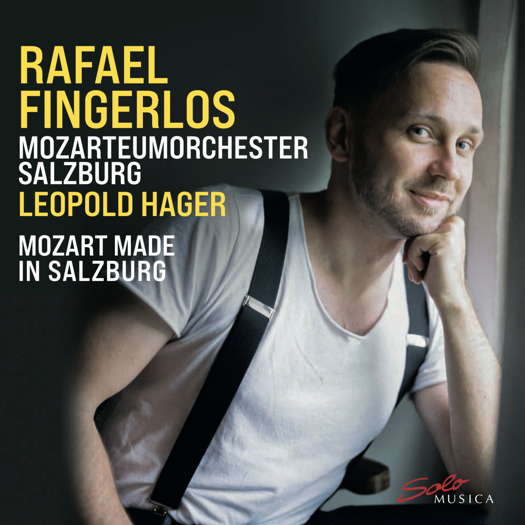- fourth century
- J C H Rinck
- Charles Wuorinen
- english horn
- Martin Roscoe
- Peter Gelb
- Olivia Clarke
- José Scanu
 DISCUSSION: Defining Our Field - what is 'classical music' to us, why are we involved and what can we learn from our differences? Read John Dante Prevedini's essay, watch the panel discussion and make your own comments.
DISCUSSION: Defining Our Field - what is 'classical music' to us, why are we involved and what can we learn from our differences? Read John Dante Prevedini's essay, watch the panel discussion and make your own comments.
 SPONSORED: CD Spotlight. Most Remarkable - Jamaican pianist Orrett Rhoden, heard by Bill Newman.
SPONSORED: CD Spotlight. Most Remarkable - Jamaican pianist Orrett Rhoden, heard by Bill Newman.
All sponsored features >>

Sumptuous, Virtuosic, Wild and Spectacular
Mozart from Salzburg, heard by GERALD FENECH
'... consistently vibrant, sensitive and heartwarming.'
The title of this CD could not have been more appropriate: 'Mozart made in Salzburg'. Indeed, Mozart was in every sense of the word made in Salzburg, where he was born on 27 January 1756. Unfortunately the master and his city were not exactly the ideal couple, but as things panned out, both benefited from each other's fame. A unique prodigy, the young Wolfgang began composing at the age of five. His father Leopold was a devoted teacher, but he soon discovered that his son was the real teacher, and he ceased to compose altogether. Leopold soon embarked on several tours around the continent to showcase Wolfgang's genius, and this gave Mozart the chance to meet many musicians and acquaint himself with their music. These trips lasted for six years (1762-68).
At the beginning of January 1769 the Mozarts returned to Salzburg for one year, after which they left for Italy, where they remained until March 1773. On their return, Mozart was employed as a court musician by the ruler of Salzburg, Prince-Archbishop Hieronymous Colloredo, and this gave him the opportunity to work in many genres. Between April and December 1775, Mozart developed an enthusiasm for violin concertos, producing a series of five - the only ones he ever wrote - which steadily increased in their musical ingenuity.
Despite these artistic successes, his low salary and the very minute chances he had to write operas (which he longed for) induced Mozart to grow increasingly discontented, and he redoubled his efforts to leave Salzburg and find a position elsewhere. The situation came to a head when the court theatre was closed in 1775. In August 1777 Mozart resigned his position at Salzburg. After trips to Paris, Strasbourg, Mannheim and Munich, Mozart returned to Salzburg on 15 January 1779 and took up his new appointment as court organist and concertmaster, but his discontent with Salzburg never wained. Indeed, this is what Mozart wrote about his birthplace:
You have to admit, in Salzburg there isn't a penny's worth of stimulation. It's as if the audience consisted of nothing but tables and chairs. Salzburg is no place for my talent. There's nothing going on there musically. I don't want to have anything to do with Salzburg anymore.
Some relationship, this.
In 1783 Mozart and his wife Constanze visited his family in Salzburg. His father and sister were cordially polite to the woman, and the sojourn was on the whole positive. So much so that Mozart composed one of his great liturgical pieces: the Mass in C Minor. Though not completed, it was premiered in Salzburg with Constanze singing a solo part.
Now to the disc in hand. A special connecting and autobiographical element for this recording is the beautiful city of Mozart's birth, a place steeped in legend and musical history which became the hometown of all those involved in this production, from composer to conductor, the soloist to the musicians and orchestra director – at least for an important period of their lives; in the actual as well as the artistic sense.
Listen — Mozart: Hai già vinta la causa (Le nozze di Figaro)
(track 5, 0:00-1:00) ℗ 2021 Solo Musica :
In addition to well known repertoire, arias from Nozze, Don Giovanni, Così and The Magic Flute, Rafael Fingerlos' recording also offers delightful discoveries such as the rarely performed aria of Allazim from Zaide, 'Nur mutig, mein Herzel', the little concert aria 'Un bacio di mano', K 541, and even a stirring world premiere of another rarity – the daredevil cabaletta of the Conte Aria with its fourteen high Gs, which the composer especially wrote for the Conte singer in the Viennese premiere of Figaro. This is a piece that is absolutely sumptuous, virtuosic, wild and spectacular.
Listen — Mozart: Un bacio di mano, K 541
(track 9, 0:17-0:53) ℗ 2021 Solo Musica :
The programme also includes the concert arias K 147, 433, 524, 539, 584 and 621a.
Listen — Mozart: Io ti lascio, o cara, K 621a
(track 17, 0:28-1:22) ℗ 2021 Solo Musica :
The aim of this project was always to achieve a sound that is as close as possible to the live experience that can also be reproduced in concert at any time: to be as authentic and, above all, as natural as possible. Rafael Fingerlos despatches these Mozart 'bonbons' with superb technical aplomb, and his singing is consistently vibrant, sensitive and heartwarming.
Listen — Mozart: Rivolgete a lui lo sguardo, K 584
(track 1, 4:14-5:12) ℗ 2021 Solo Musica :
This is a memorable recital that is truly worthy of the composer, on the 230th anniversary of his death, although may I ask, has he ever left us? Of course not. Mozart's delectable treasure is eternal. Just let yourself be immersed in it.
Copyright © 26 November 2021
Gerald Fenech,
Gzira, Malta

CD INFORMATION: MOZART MADE IN SALZBURG
SALZBURG CLASSICAL MUSIC ARTICLES


